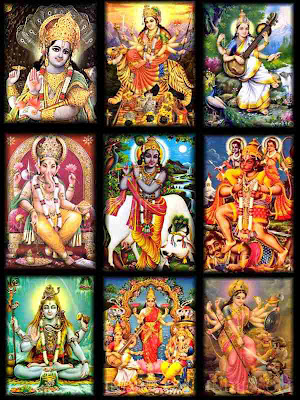 When the question of who is a Hindu is discussed today, we get a multitude of confused and contradictory answers from both Hindu laypersons and from Hindu leaders. That we have such a difficult time understanding the answer to even so fundamental a question as "who is a Hindu?" is a starkly sad indicator of the lack of knowledge in the Hindu community today.
When the question of who is a Hindu is discussed today, we get a multitude of confused and contradictory answers from both Hindu laypersons and from Hindu leaders. That we have such a difficult time understanding the answer to even so fundamental a question as "who is a Hindu?" is a starkly sad indicator of the lack of knowledge in the Hindu community today. Common Answers
Some of the more simplistic answers to this question include: Anyone born in India is automatically a Hindu (the ethnicity fallacy), if your parents are Hindu, then you are Hindu (the familial argument), if you are born into a certain caste, then you are Hindu (the genetic inheritance model), if you believe in reincarnation, then you are Hindu (forgetting that many non-Hindu religions share at least some of the beliefs of Hinduism), if you practice any religion originating from India, then you are a Hindu (the national origin fallacy).
Some of the more simplistic answers to this question include: Anyone born in India is automatically a Hindu (the ethnicity fallacy), if your parents are Hindu, then you are Hindu (the familial argument), if you are born into a certain caste, then you are Hindu (the genetic inheritance model), if you believe in reincarnation, then you are Hindu (forgetting that many non-Hindu religions share at least some of the beliefs of Hinduism), if you practice any religion originating from India, then you are a Hindu (the national origin fallacy).
The Real Answer
The real answer to this question has already been conclusively answered by the ancient sages of Hinduism, and is actually much simpler to ascertain than we would guess. The two primary factors that distinguish the individual uniqueness of the great world religious traditions are a) the scriptural authority upon which the tradition is based, and b) the fundamental religious tenet(s) that it espouses. If we ask the question what is a Jew?, for example, the answer is: someone who accepts the Torah as their scriptural guide and believes in the monotheistic concept of God espoused in these scriptures. What is a Christian? - a person who accepts the Gospels as their scriptural guide and believes that Jesus is the incarnate God who died for their sins. What is a Muslim? - someone who accepts the Qur'an as their scriptural guide, and believes that there is no God but Allah, and that Mohammed is his prophet.
The real answer to this question has already been conclusively answered by the ancient sages of Hinduism, and is actually much simpler to ascertain than we would guess. The two primary factors that distinguish the individual uniqueness of the great world religious traditions are a) the scriptural authority upon which the tradition is based, and b) the fundamental religious tenet(s) that it espouses. If we ask the question what is a Jew?, for example, the answer is: someone who accepts the Torah as their scriptural guide and believes in the monotheistic concept of God espoused in these scriptures. What is a Christian? - a person who accepts the Gospels as their scriptural guide and believes that Jesus is the incarnate God who died for their sins. What is a Muslim? - someone who accepts the Qur'an as their scriptural guide, and believes that there is no God but Allah, and that Mohammed is his prophet.
Scriptural Authority
In general, what determines whether a person is a follower of any particular religion is whether or not they accept, and attempt to live by, the scriptural authority of that religion. This is no less true of Hinduism than it is of any other religion on earth. Thus, the question of what is a Hindu is similarly very easily answered.
The Definition
By definition, a Hindu is an individual who accepts as authoritative the religious guidance of the Vedic scriptures, and who strives to live in accordance with Dharma, God's divine laws as revealed in the Vedic scriptures.
 Only If You Accept the Vedas
Only If You Accept the VedasIn keeping with this standard definition, all of the Hindu thinkers of the six traditional schools of Hindu philosophy (Shad-darshanas) insisted on the acceptance of the scriptural authority of the Vedas (shabda-pramana) as the primary criterion for distinguishing a Hindu from a non-Hindu, as well as distinguishing overtly Hindu philosophical positions from non-Hindu ones. It has been the historically accepted standard that, if you accept the Vedas (and by extension Bhagavad Gita, Puranas, etc.) as your scriptural authority, and lived your life in accordance with the Dharmic principles of the Vedas, you are then a Hindu. Thus, an Indian who rejects the Veda is obviously not a Hindu. While an American, Russian, Indonesian or Indian who does accept the Veda obviously is a Hindu.





